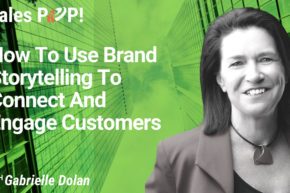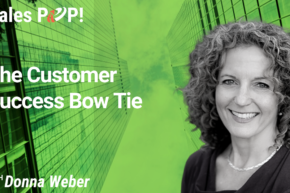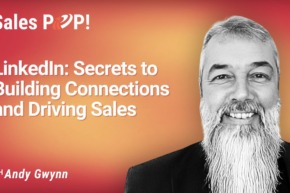In a recent episode, John Golden sat down with Benjamin Dennehy, the self-proclaimed “UK’s most hated sales trainer.” The conversation was a no-holds-barred exploration of why so many salespeople struggle—and what it truly takes to achieve professional excellence. Dennehy’s approach is direct, sometimes uncomfortable, but always rooted in a deep understanding of the psychological and practical barriers that hold salespeople back.
If you’re ready to confront the “ugly mirror” and make meaningful changes in your sales career, this in-depth guide will break down the key themes and actionable strategies from the episode. We’ll go beyond the basics, diving into the nuances of mindset, questioning, self-investment, and professional discipline that separate top performers from the rest.
Why Most Salespeople Struggle: The Ugly Mirror
Benjamin Dennehy doesn’t mince words: most salespeople are failing because they’re unwilling to face uncomfortable truths about their profession and themselves. He describes his role as holding up an “ugly mirror,” forcing salespeople to confront:
- Lack of true motivation: Many fall into sales by accident, not by design.
- Superficial training: Most receive only product training, not professional sales training.
- Avoidance of self-reflection: Few are willing to examine their own habits and beliefs.
Key Takeaway:
Success in sales starts with brutal honesty. Are you willing to see—and change—what’s really holding you back?
Mindset Matters: From Default to Design
The Problem: Accidental Salespeople
Dennehy points out that unlike law, medicine, or accounting, sales is often a “default” career. Most salespeople:
- Enter the field without intention or passion.
- Receive minimal training—often just a product overview and a CRM login.
- Hope for success rather than actively pursuing mastery.
The Solution: Intentional Professionalism
To excel, you must:
- Choose sales as a profession, not a fallback.
- Commit to ongoing learning and skill development.
- Adopt a growth mindset: View every challenge as an opportunity to improve.
Action Steps:
- Reflect on why you’re in sales. Is it by choice or by chance?
- Set clear professional goals and map out a plan to achieve them.
- Seek out mentors, coaches, and resources that challenge your current thinking.
The Power of Self-Investment in Sales
Why Self-Funded Training Matters
Dennehy is adamant: salespeople who pay for their own training are more committed and see better results. Relying on employers to invest in your growth is a recipe for stagnation.
Why?
- Personal investment increases accountability.
- You value what you pay for.
- It signals seriousness to yourself and others.
The Golf Analogy
John Golden highlights how people spend thousands on hobbies like golf—coaches, equipment, lessons—yet balk at investing in their own careers.
Action Steps:
- Allocate a portion of your income to professional development each year.
- Invest in high-quality sales training, books, and workshops.
- Track your ROI: How does each investment improve your skills and results?
Overcoming Psychological Barriers
Childhood Conditioning and Sales Hesitation
Dennehy explains that many salespeople are held back by subconscious beliefs formed in childhood:
- Fear of interrupting strangers: “Don’t talk to strangers” is ingrained early.
- Aversion to conflict: Many avoid tough conversations to keep the peace.
- Money hang-ups: Limiting beliefs about money sabotage confidence.
Expert Insight:
Dennehy humorously blames “your mother” for these issues, urging salespeople to stop letting childhood conditioning dictate their professional behavior.
How to Break Free
- Acknowledge your limiting beliefs.
- Practice assertiveness in low-stakes situations.
- Reframe conflict as a necessary part of growth and sales.
Action Steps:
- Journal about your earliest memories of money, conflict, and authority.
- Role-play challenging sales scenarios to build confidence.
- Seek feedback from peers or coaches on your assertiveness and presence.
Positioning Yourself as a Business Equal
The Intimidation Trap
Salespeople often feel inferior when speaking to high-level prospects (e.g., CEOs, chairmen). This leads to:
- Timidity in conversations
- Failure to challenge or probe deeply
- Over-reliance on product features instead of business value
The Solution: See Yourself as an Expert
Dennehy’s advice:
- Approach every prospect as a business equal.
- Focus on understanding and solving their problems, not just pitching products.
- Remember: You are the expert in your field.
Action Steps:
- Prepare for meetings by researching the prospect’s business challenges.
- Practice introducing yourself as a consultant or advisor, not just a salesperson.
- Ask questions that demonstrate your expertise and business acumen.
Mastering the Art of Questioning
The Problem: Superficial Questions
Most salespeople:
- Ask surface-level, fact-finding questions.
- Rush to answer every question, often missing the real issue.
- Avoid probing for fear of conflict or losing the deal.
The Power of Deep, Insightful Questions
Dennehy teaches that:
- The first question a prospect asks is rarely the real question.
- Effective salespeople clarify and explore the intent behind questions.
- Skillful questioning uncovers true motivations, pain points, and objections.
Real-World Example
Dennehy shares a story of a chairman who wanted to double his company’s size. By repeatedly asking “why,” Dennehy uncovered the chairman’s true motivation: leaving a legacy. This insight transformed the sales conversation.
Actionable Questioning Techniques
- Always ask “why” at least three times to get to the root motivation.
- When asked a question, respond with: “That’s a great question—can I ask why you’re asking?”
- Listen for emotional cues, not just logical answers.
Exercise: The “I’m Doing It to You Now” Badge
Dennehy wears a badge at events that prompts questions from attendees. He uses their curiosity to demonstrate how people love talking about themselves—and how effective questioning builds rapport and uncovers valuable information.
Action Steps:
- Prepare a list of open-ended, probing questions for your next sales call.
- Practice responding to questions with clarifying questions of your own.
- Reflect after each call: Did you uncover the real “why” behind the prospect’s needs?
Developing Professional Habits and Discipline
Sales Is a Profession—Act Like It
Dennehy draws a sharp contrast between sales and other professions:
- Lawyers, doctors, and accountants train for years before practicing.
- Salespeople often call themselves “professionals” after a few days of product training.
The Discipline of Mastery
- Commit to daily practice and improvement.
- Track your progress and set measurable goals.
- Seek out tough feedback and embrace discomfort.
Action Steps:
- Set aside time each week for skill development (reading, training, role-play).
- Join a peer group or mastermind for accountability.
- Regularly review your sales calls and identify areas for improvement.
Money Mindset: Why It Matters
The “Cheap” Salesperson Problem
Dennehy warns that salespeople with a poor money mindset:
- Struggle to sell high-value products or services.
- Default to discounting and undercutting themselves.
- Project their own financial insecurities onto prospects.
Building a Healthy Attitude Toward Money
- Recognize the value you bring to clients.
- Practice quoting your full price with confidence.
- Invest in yourself without guilt or hesitation.
Action Steps:
- Reflect on your beliefs about money and value.
- Practice stating your price out loud until it feels natural.
- Celebrate your wins and the value you deliver to clients.
Expert Resources and Next Steps
Free Training from Benjamin Dennehy
Dennehy offers two of his premium courses for free to podcast listeners:
- “Ten Reasons Why Your Prospecting Fails”
- “Bulldozing Your Way Through Objections”
Our Host
John is the Amazon bestselling author of Winning the Battle for Sales: Lessons on Closing Every Deal from the World’s Greatest Military Victories and Social Upheaval: How to Win at Social Selling. A globally acknowledged Sales & Marketing thought leader, speaker, and strategist, he has conducted over 1500 video interviews of thought leaders for Sales POP! online sales magazine & YouTube Channel and for audio podcast channels where Sales POP! is rated in the top 2% of most popular shows out of 3,320,580 podcasts globally, ranked by Listen Score. He is CSMO at Pipeliner CRM. In his spare time, John is an avid Martial Artist.







Comments